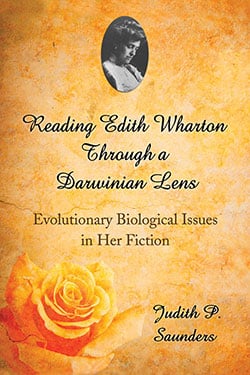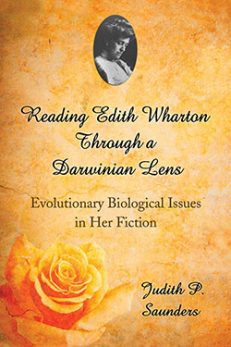Reading Edith Wharton Through a Darwinian Lens
Evolutionary Biological Issues in Her Fiction
Original price was: $39.95.$31.99Current price is: $31.99.
In stock
About the Book
Beneath the polished surface of the genteel environments delineated in Wharton’s fiction, characters are competing fiercely for desirable mates, questing for social status and resources, and plotting ruthlessly to advance their relatives’ fortunes in life. This book identifies these and other evolutionary issues central to her fiction, demonstrating their significance in terms of character, setting, plot, and theme. Connections to existing Wharton criticism are made throughout the book, so that readers can see how an evolutionary perspective enriches, refutes, or reconfigures insights derived from other critical approaches.
About the Author(s)
Bibliographic Details
Judith P. Saunders
Format: softcover (6 x 9)
Pages: 249
Bibliographic Info: glossary, notes, bibliography, index
Copyright Date: 2009
pISBN: 978-0-7864-4002-3
eISBN: 978-0-7864-5365-8
Imprint: McFarland
Table of Contents
Acknowledgments vi
List of Abbreviations viii
Introduction 1
1. The House of Mirth: An Unsuccessful Mate Search 7
2. The Reef: The Costs of Conflict Between the Sexes 35
3. The Age of Innocence: Nepotistic Influences on Mating Behavior 68
4. The Glimpses of the Moon: A Creative Experiment in Long-Term Mating 103
5. The Old Maid and “Roman Fever”: Female Mate Choice and Competition Among Women 139
6. The Children: Social Environment and Parental Investment 167
Conclusion: Evolutionary Biological Preoccupations in Wharton’s Fiction 184
Glossary 213
Chapter Notes 215
Works Cited 233
Index 239
Book Reviews & Awards
“wonderfully insightful…Saunders has done the world of Wharton criticism a great service in illuminating the depth of the novelist’s Darwinian obsessions. Saunders has synthesized an incredible amount of material and thought deeply about how it all fits together. Her prose is fast-paced, consistently interesting, and informative. Yet she never lets her own material overwhelm Wharton’s material, an extraordinarily rare virtue in any critic and one almost never found in a critic who is applying a new theory to a canonical author”—The Evolutionary Review; “well written and well researched…fascinating”—Edith Wharton Review; “definitive”—Literary Matters; “provides new ways for the reader to decipher Edith Wharton’s novels”—South Atlantic Review.





